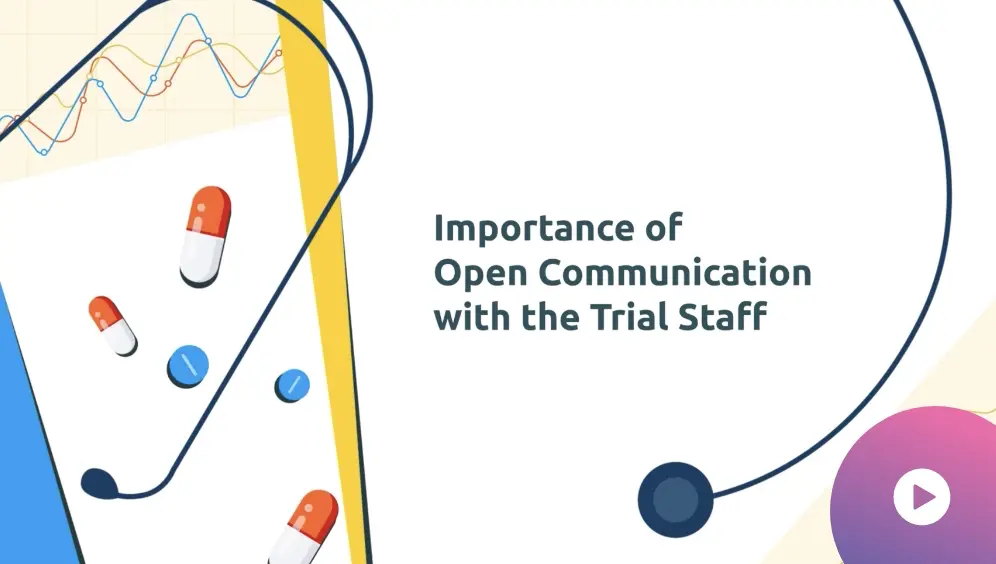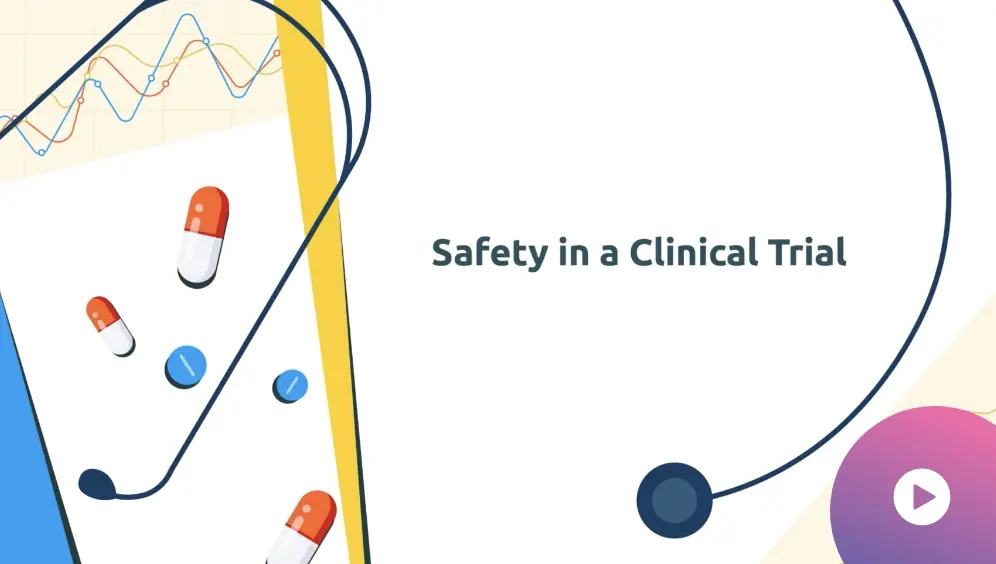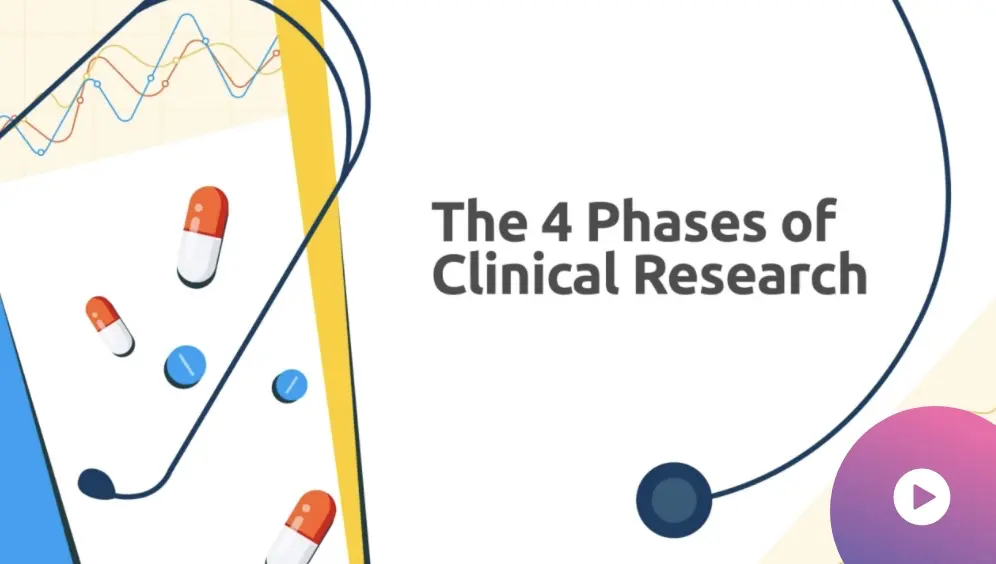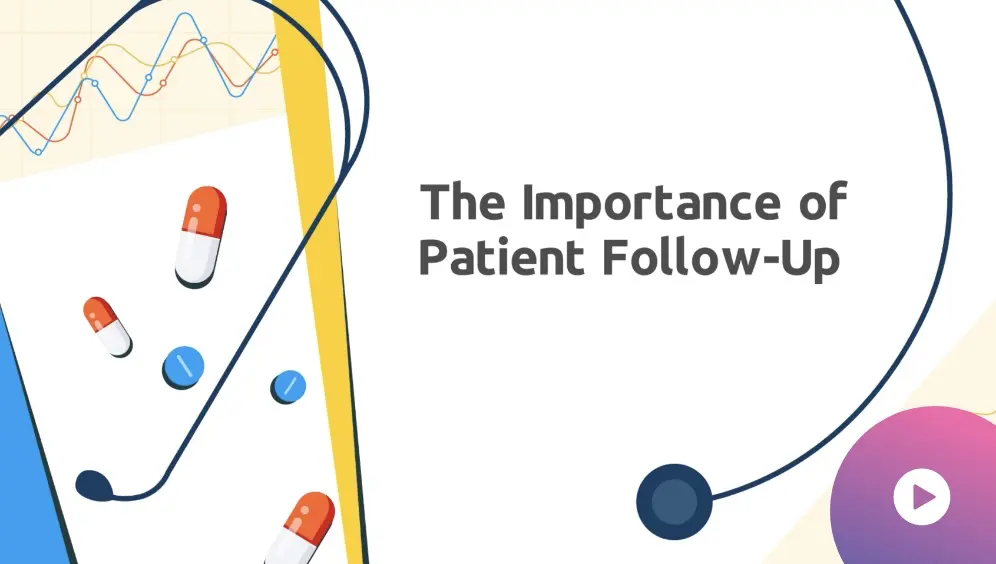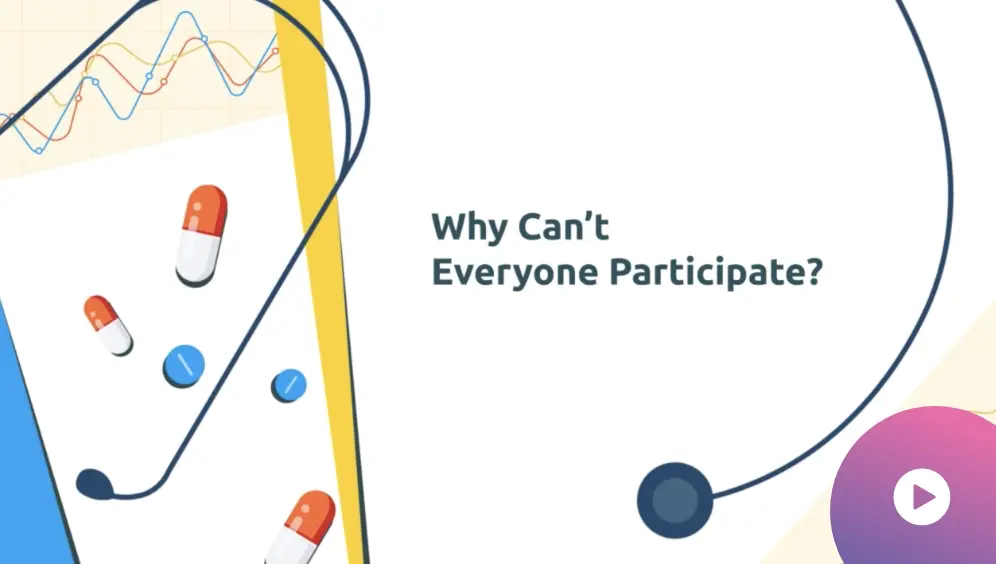About Clinical Research
Learn more about clinical trials and what it means to participate in the videos below:

Clinical trials offer hope for many people and are a chance to help researchers find better treatments for others in the future. The information that follows will provide you with a basic understanding of clinical trials. The more you know about clinical trials, the better prepared you will be when deciding if participating in a clinical trial is the right choice for you.
-
A clinical research trial is a carefully designed scientific evaluation of an investigational medication or treatment that is conducted by doctors and researchers.
Trials are conducted in 4 phases:
- Phase 1 trials generally examine the safety of an investigational medication in healthy people.
- Phase 2 trials involve the assessment of safety, efficacy, and establishing the appropriate dosing regimens in participants.
- Phase 3 trials confirm the efficacy and safety of an investigational medication in participants.
- Phase 4 trials are conducted after an investigational medication has been approved to gather additional efficacy and safety information.
-
All clinical trials have a set of guidelines called eligibility criteria that determine who can participate. The eligibility criteria are based on factors such as age, gender, the type and stage of a condition, previous treatment history, and other medical conditions. It is important to note that the eligibility criteria are not used to reject or accept people personally. Instead, the criteria are used to identify appropriate participants and help keep them safe.
-
Research is conducted for many years before an investigational medication advances to a clinical trial. Negative effects are possible. You will be fully informed of all known risks and the potential for unknown risks before you start. During the trial, your trial team will carefully monitor the health and safety of you and your baby. You should report any concerns to your trial doctor.
-
Each clinical trial has a well-documented plan, or protocol, about what you will need to know and what is expected. Your trial team will keep you fully informed about the plan, including all known potential benefits and risks of the research. If there is a change in your or your baby’s health while you are participating, the trial doctor will inform you immediately and will discuss your options, as your physical and mental health are of paramount importance. You are encouraged to ask any questions at any time. If you decide to participate, you will be asked to sign an informed consent form.
-
Activities vary from one clinical trial to the next, but most require regular medical examinations. Some trials involve taking either an approved or investigational medication, while others involve a procedure. Your trial doctor will discuss these details with you. You may be asked to record information about how you are doing. You also may be asked to return for follow-up visits to evaluate whether the research is producing the intended results.
-
Participant information is confidential; however, your provider may be required by law to share your information in certain situations. If information from the trial is published or presented at scientific meetings, your name and other personal information will not be used. The clinical trial sponsor and regulatory agencies also may review the research files and medical records.
Download Clinical Trials Education Booklet

